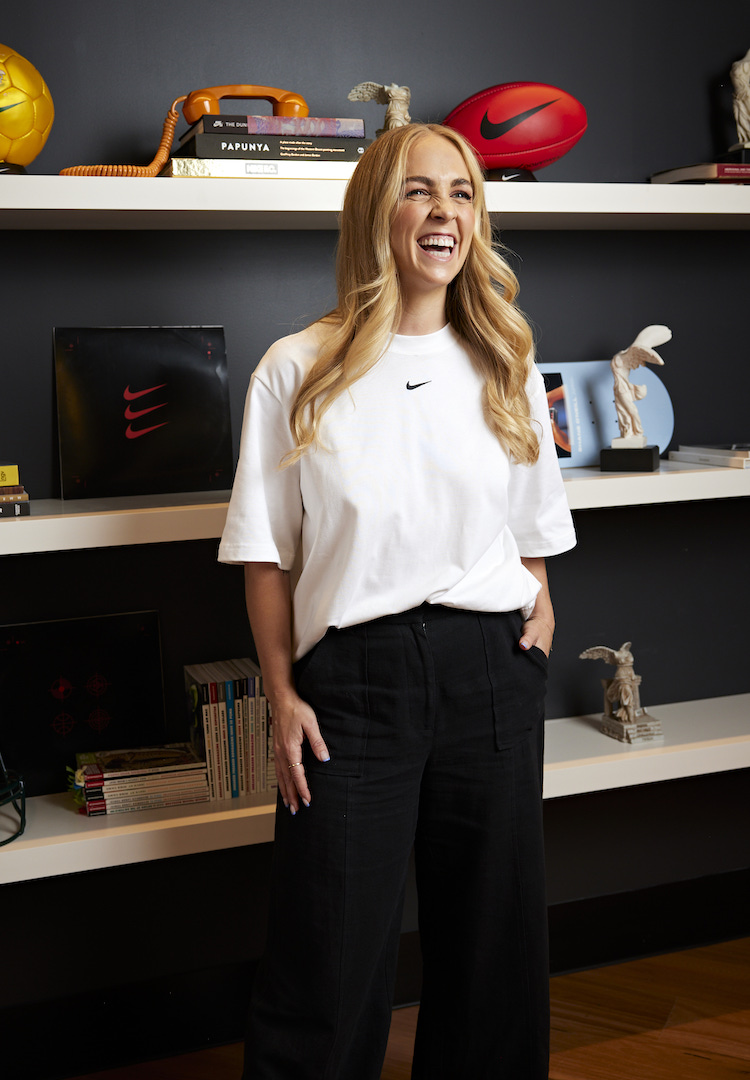Should I apply for a job I’m not completely qualified for?
WORDS BY NATASHA SCHAPOVA
An expert weighs in.
I’m sure we’re all familiar with the feeling of desperately scouring Seek or Indeed for hours, before finally finding a job we’re actually interested in. As we eagerly click into it, we’re already fantasising about what our life would look like and how thrilling it would be to update our LinkedIn profile, but as we continue scrolling through the job advert our daydream quickly dissipates as we read the multiple employee requirements that we do not satisfy.
As a journalism student, I’ve found that even though my degree and extracurricular activities have taught me a multitude of skills to prepare me for the workforce, a lot of the time I still find myself falling short when applying for jobs. More and more, employers are requiring applicants to be chameleons who are able to dip their feet into a little bit of everything.
For more career-related advice, head to our Life section.
Recent graduate? Well, you’re expected to already have years of experience – that’s the norm. So when I was accepted for a video editing job I applied for, the offer triggered a deafening thought inside my head:‘Do you really think you’re good enough?’ Sure, I had basic video editing skills but I was by no means a pro, and when you’re getting paid to work you expect yourself to be pretty good at it.
My lack of self-confidence led me to speak to the journalism lecturer who had recommended me for the job. Without directly expressing my self-doubt, I mentioned that my knowledge may be lacking. Rather than reassuring me of my skills, she shared a story from her own life as a former journalism student.
She told me that back in the day, she walked into the office of one of the biggest newsrooms in Melbourne, wearing casual Country Road shorts and flip-flops, requesting a job. Looking back now, she laughs, remembering how ridiculously confident she was, while not even being that good.
My lecturer’s story inspired me to dial down on my self-doubt and be more open to challenging opportunities. To improve my craft, I spent hours watching YouTube tutorials to learn everything I might need for my new job. As my skills grew, so did my confidence.
This left me wondering whether I should have accepted the job in the first place, or applied for something more within my reach. To unpack the topic and discuss whether it’s worth applying for jobs you’re not fully qualified for, I spoke to career and interview coach and the director of Relaunch Me, Leah Lambart.
So, should we?
When it comes to applying for jobs you’re not sure of, Leah suggests expressing your interest anyway because having a good application can lead to other opportunities within the company in the future.
“They might even create a role if they feel like you’re someone who is genuinely interested and capable of working for them. So, I always think you have to be prepared that you may not get the job or interview but it’s always worth throwing your hat in the ring and giving it a go, and really expressing interest in that particular company and why you want to work for them.”
If you’re adamant about working in the company, Leah advises researching the types of roles that exist within the organisation, through LinkedIn or the company’s website. Her key tip? Communicate that you want to work for them in whatever capacity and are willing to start in a lower role and work your way up.
If you are successful in securing the job, it turns out that stressing about it isn’t worth it. Instead, Leah assures me that learning on the job is completely fine and expected from graduates and entry-level people. Employers are aware that a degree is a good representation of discipline and commitment, but most relevant job skills are acquired while working..
How to prepare
And if you are feeling underprepared, Leah has some tips on feeling more competent in the role. “I think the first thing is listening to everything that people tell you in the first couple of weeks or months, so make sure to have somewhere where you can document things.
“Not being afraid to ask questions is really important. Always be mindful of choosing the right time so perhaps save all of your questions and have a meeting with someone once a week so that you have a dedicated time to ask questions about things you need to know.
“Also asking them what you can do outside of work hours to upskill faster. This might mean learning a piece of technology or doing a short course, something that you can be doing in your own time, to learn as quickly as possible,” she explains.
But Leah says it’s also important to not sell yourself short. Studies show that women are less likely than men to apply for jobs they’re not fully qualified for. Leah attests this to men “perhaps being better at selling themselves in general, they are more likely to speak up and tell people about their strengths and achievements where women feel like that’s bragging or boasting”.
Dealing with imposter syndrome
Women are also more likely to be less confident at the start of their careers, falling victim to imposter syndrome. Leah says this prevents us from taking on opportunities, thinking that other people could do a better job. Imposter syndrome most commonly occurs when we feel we’re stretching ourselves, but Leah has some advice on how to combat it.
“I think the first thing is acknowledging that it’s quite normal and then the second thing is being prepared for those thoughts when you’re about to push yourself out of your comfort zone and having counter-arguments to convince that inner critic that you are good enough or you are experienced enough and that everyone has to start somewhere. So being aware of those thoughts and noticing them when they happen, but having the ability to argue against them,”
“The third thing is reminding ourselves of the things we do well. So it might help to have an achievements journal, somewhere where once a day you write down what you achieved that day or at the end of the week so that if you are having some self-doubt you can reflect on the things you’ve done well. It might be an email from a client or manager saying what a great job you did, it might be a testimonial you received from a customer, so I think we’ve got to remind ourselves when we have those feelings that we’re doing really well and that we are good enough to be there.”
How to communicate that you’re capable of doing the job
I asked Leah how to communicate to the employer that even though you might not meet all of the requirements for the job, you’re still capable of doing it. She explained it’s important to relay that you have the skills to learn quickly by providing examples from the past.
“There’s a lot to be said for passion and enthusiasm as well, I think most organisations would rather recruit someone that’s perhaps a little bit lighter on the experience but if they’re super excited and enthusiastic about working for that company they would rather that than someone who sounds less excited about working for them but has had extensive experience.”
This article was originally published on September 3, 2021.
To book a career consultation with Leah Lambart, head to the Relaunch Me website here.










